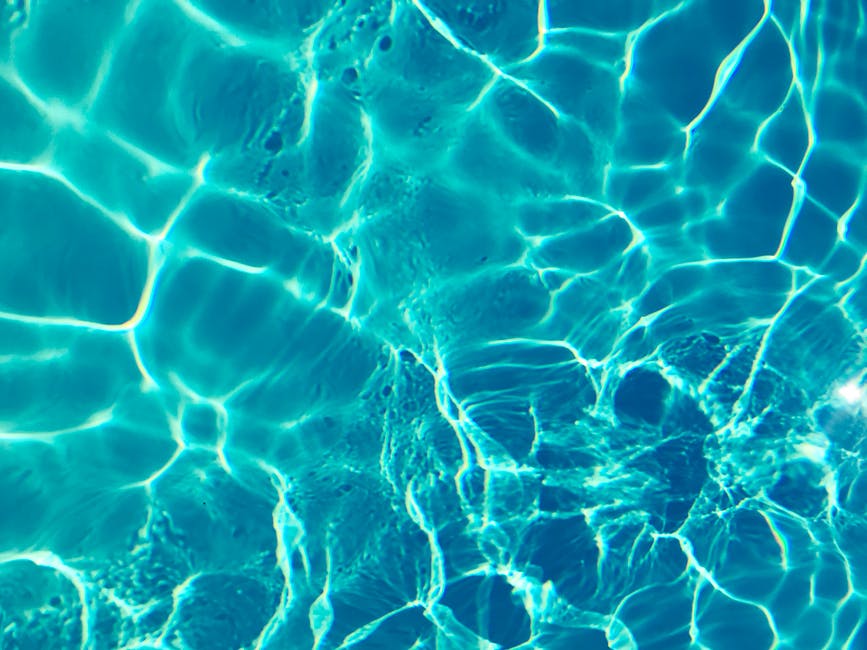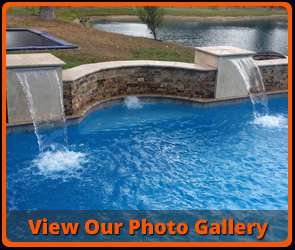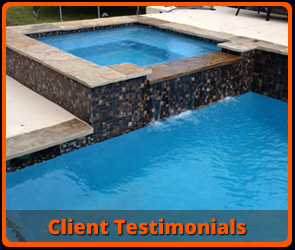Every year, the Houston area averages about 99.6 days where the high temperature is 90 degrees Fahrenheit or more. Those summer months can become a bit unbearable. But having your own backyard swimming pool can make those summer months much more bearable.
If you have a backyard pool, you may wonder what pool chemicals you need to keep it clean and usable. Some people find it overwhelming, but by taking it step by step, figuring out what chemicals to use can be relatively simple.
Let’s take a look at the pool chemicals you need for your backyard pool.
Sanitizers
Sanitizers are chemicals that keep your pool water sanitized and disinfected. Chlorine is the chemical most people recognize that is used to sanitize a swimming pool. There are non-chlorine options, such as hydrogen peroxide or bromine in indoor pools.
Chlorine attacks and neutralizes harmful bacteria and microorganisms in the water. In addition, it helps prevent algae growth. The importance of chlorine makes it one of the chemicals you need to add to your pool maintenance routine.
In general, the levels of chlorine or bromine should be constant all the time. You’ll need to monitor and adjust these chemicals accordingly about a few times a week.
Oxidizers
These swimming pool chemicals act as secondary sanitizers to kill algae and bacteria. Usually, oxidizers are used every few weeks. They usually come in granular or powdered form that you simply pour into the pool.
You may also hear oxidizers called shocks. That’s because they cause a quick change to the chemical levels of the water, quickly sanitizing it. The large change causes chlorine levels to reset and return to normal, healthy levels.
You can choose from either chlorine or non-chlorine shocks. Chlorine shocks are the traditional choice, though many people also opt for non-chlorine options.
Water Balancers
There are a few levels you want to keep balanced. A few times a week, you should check your pH levels. You should test total alkalinity every couple of weeks. Every few months, you may need to test calcium hardness and cyanuric acid levels if you have pH problems.
Managing the pH of your pool may not seem like a big deal. However, pH is one of the key factors of pool safety. Your pool water should have a pH between 7.2 and 7.8, as the human body has a pH of around 7.4.
If you keep the pH around these levels, the water will not irritate your skin, eyes, and mucous membrane. In addition, it also helps maintain the effectiveness of chlorine that you add to the pool.
If you need to increase your alkalinity, you can add sodium bicarbonate. Meanwhile, dry acid lowers total alkalinity. Soda ash or borax can be used to increase pH, while sodium bisulfate or muriatic acid decreases pH.
Calcium hardness affects if your water feels soft or silky. You want to aim for levels between 200-400 ppm. Calcium hardness increasers can help alter these levels as needed. Cyanuric acid is a stabilizer that you can add separately or as part of other chemicals.
Other Specialty Chemicals
While there are some swimming pool chemicals that you need regularly, there are others you may not need as often but that are still helpful. These specialty chemicals can help solve unexpected problems and can help keep your pool looking clear and clean.
Algaecides prevent algae from growing. It’s best if you use a pool shock to kill an initial algae bloom, then use algaecides to keep it at bay. These are mostly non-metallic polymers, though some are copper-based.
Algae feed on certain kinds of phosphates that can be in your pool water. Using a phosphate remover can help remove extra phosphates and give your algaecide a boost.
Clarifiers and flocculants have similar jobs in that they help keep your pool clean. Clarifiers cause small particles to come together to form bigger particles that get trapped in the pool filter. Flocculants coagulate particles into heavy clumps which sink and allow you to vacuum them away.
Pink slime is also a condition you want to avoid. Pool enzymes can help stop pink slime from forming, but they can also help fight and remove organic stains.
If you want to prevent stains and scale, you’ll need two different chemicals. Stain removers get rid of organic and metal stains. On the other hand, scale preventers work to stop calcium scaling.
Pool Chemical Safety
Since pool chemicals are necessary for your pool, you’ll need to keep some on hand to add regularly or in case a problem pops up. You must store all chemicals in a safe place and handle them carefully.
When you add chemicals to your pool, you must never mix the chemicals. Doing so is incredibly dangerous to you and everyone else around you’s health and safety. Mixed chemicals can create toxic fumes and even small-scale explosions.
Instead, add pool chemicals one at a time. If you add them separately, but in the right order, you’ll have a faster, more effective process of treating your pool.
Start by adding total alkalinity chemicals, followed by pH adjusters, then calcium hardness adjusters. Next add your sanitizer, such as chlorine. The last step should be cyanuric acid (CYA).
Use the Right Pool Chemicals for Your Backyard Pool
If you want to keep your backyard pool clean and safe to swim in, you’ll need to add a few pool chemicals. Using the right chemicals like chlorine, pH balancers, and clarifiers will help make it easier to keep your pool looking great.
Call Sahara Construction and Custom Pools for your free consultation to get the pool of your dreams.




